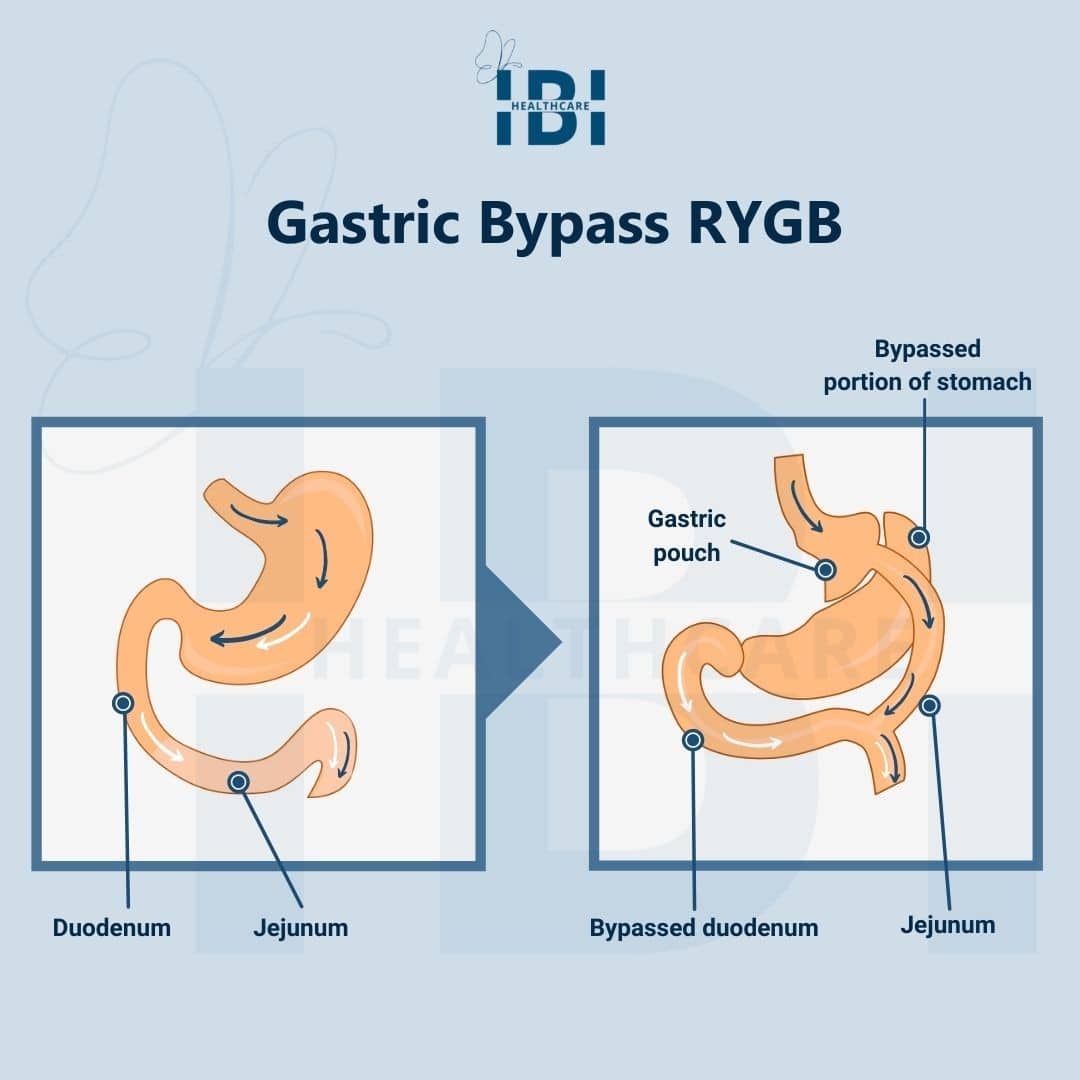Are you concerned about exercise limitations and restrictions to follow after Bariatric Gastric Bypass Surgery for a safe and successful recovery? Discover guidelines and tips for a smooth transition back to work with optimal healing.
Before bariatric surgery, understand surgery prerequisites and the recovery process. Gastric bypass requires extended recovery and lifestyle changes. Recovery varies, usually 6-8 weeks with 2-4 weeks off. Return to work in 2 weeks or more based on job and healing. Prepare for financial impact if income supports the family.
What is Gastric Bypass Surgery?
Gastric Bypass Surgery is one of the most common types of weight loss surgery performed in the USA today. During gastric bypass surgery, the stomach is made much smaller and the small intestine is re-routed to control the number of calories and nutrients the body can absorb. Food travels more quickly through the digestive system and limits caloric intake resulting in significant weight loss.

An Overview of Gastric Bypass Recovery Time
After gastric bypass surgery, patients spend between 3 to 5 days in the hospital for observation and monitoring. This is to help mitigate risks such as bleeding, leaking, or other complications due to the surgery. Typically during the time in the hospital, the patient is given medication to alleviate any abdominal pain and surgery-related discomfort.
Usually, the patient is not allowed to eat or drink anything until the day after surgery except for some ice chips. Patients can start drinking clear liquids for breakfast the day after surgery and then their diet may advance to full liquids and possibly protein shakes (if tolerated) by that evening. The Dietary Plan will vary depending on the type of surgery performed and other patient particulars.
Most patients will have a bladder catheter for the first few days in the hospital and may have another catheter used for drainage. Patients must wear supportive compression stockings while in the hospital and recovering at home. In addition to the compression stockings, medical staff will assist patients with getting up and walking around to prevent blood clots from occurring. A unique tool will be used to facilitate breathing exercises periodically to help re-expand the lungs after the surgery.
The hospital will monitor and control any pain experienced by the patient through an IV and then gradually switch to oral medications. Once the surgeon has medically cleared the patient and they can walk around fairly well, the hospital will discharge them.
Gastric Bypass Recovery Time at Home
Arrange for Some Help
- You will need someone to drive you home from the hospital and stay with you for a few days. In addition to providing moral support, your friend or loved one can help you deal with everyday life until you can handle some of these things yourself.
- You may need help with some personal grooming routines such as getting to the bathroom or showering for the first few days. Even things as simple as bending down to lift the toilet lid may not be possible right away.
- You may also need assistance with normal household tasks, caring for children, and pets, grocery shopping, and helping you stay on course with your fluid and diet intake.
- You may need them to drive you to appointments for about a week or so until you can drive again when cleared by the surgeon and no longer on prescription pain medication.
Walking and Wound Care for Gastric Bypass Recovery
You will be very fatigued and will tire easily but you need to be diligent about doing your short little walks around the house several times a day. You should follow the after-care instructions your surgeon provided regarding wound care and keeping the area clean and as dry as possible to prevent infection.
Redress the thin bandages on your wound site(s) after showering or every few days. Remove any staples and let the stitches dissolve without any intervention. Your aftercare directions will include the particulars regarding you and your surgery so you will know what to do. If you have any questions, contact your surgeon’s office.
You will probably be cleared to shower a day after surgery but are advised to wash gently with mild soap and dry. You won’t take a bath, swim, or use a jacuzzi until cleared. Attend all follow-up appointments and inform your surgeon of concerns.
To avoid complications, you must take all the recommended supplements and drink your water. Let yourself avoid dehydration! Dehydration is the main reason patients get admitted to the hospital after weight loss surgery, so you must strictly follow the dietary plan to not negate your surgery or make yourself sick.
Week 2 and Beyond
After you get through the first week, you will probably still be sore and uncomfortable but should be able to manage your discomfort with over-the-counter medications. You need to continue walking and building up to longer walks as time progresses, gaining strength and stamina every week until you feel normal again.
You will be following your surgery aftercare plan and increasing activity and exercise according to the plan. The transition from liquids to solids over 3 months post-op. Avoid strenuous activity for 3 to 6 weeks, depending on the surgery type.
Gastric Bypass Recovery Time and Signs of Trouble
If you develop any of the symptoms below be sure to call your surgeon immediately or go to your nearest emergency room. These may be signs of potential infection or another complication that requires medical attention:
- Fever.
- Vomiting and diarrhea.
- Pain in the shoulder or the abdomen.
- Foul-smelling discharge from wound sites.
- Chest or leg pain, shortness of breath, coughing.
- Swelling, tenderness, or redness of the wound seems to be getting increasingly worse.
Gastric Bypass Recovery Time off Work
Having bariatric surgery is a big undertaking and recovery is going to be a process. If you have a full-time job, this means you are going to have to take time off of work to recover from gastric bypass surgery. Typically, gastric bypass surgery requires patients to take off between 2 and 4 weeks. If your job is labor-intensive and you are required to lift objects weighing over 25 lb you will have to wait at least six weeks before you are cleared to return to work.
Plan for challenges when returning to work after surgery. Balance financial needs with health goals for a successful transition. Some of the challenges you may face include:
Sticking to Your Diet
Often being in an office environment makes it harder to follow dietary guidelines especially when coworkers are not bound by the same restrictions. If patients return to work while still on the very restricted portions of the die,t they may run into time constraints in regards to preparing their lunchtime time meals.
Being Diligent in Following Your Exercise Plan
Spending the majority of time during the week at work can make it hard to fit in time to exercise. It is crucial after gastric bypass surgery for your ongoing recovery and weight loss success to persevere in this area. You may need to look for creative ways to get in as much exercise during the workday as you can. Get up earlier or work out in the evenings. Park further away than you normally do so you have to walk a bit more, take the stairs instead of the elevator, or take a walk at lunch.
Your Energy and Motivation Level
After major surgery, patients routinely experience fatigue both mentally and physically. This is one of the most challenging elements after having surgery and it will take time before returning to pre-surgery energy and motivation levels. It may take several more weeks or months for patients to regain their mental and psychological energy, even though they have fully recovered physically.
Work-Related Stress
Often, stress is a trigger for people that leads to excess weight gain for both physical and psychological reasons. Returning to work may induce enough stress to make it difficult for you to maintain your dietary or weight loss goals. Learning some stress management techniques that you can practice in the workplace would be very helpful.
Patients who prepare themselves, their surroundings, and the people around them for what is to come after bariatric surgery are often more successful in returning to work. Life after bariatric surgery will change in almost every area so having conversations with managers, co-workers, and friends may go a long way in helping them understand how to better support you.
Gastric Bypass Recovery Time and Forbidden Activities
Most of the things that you cannot do after gastric bypass surgery are related to your diet. This surgery is just the launching point of your weight loss journey and requires lifelong changes to be successful. Some of the changes will be temporary and some will be permanent however, in the long run, the benefits of implementing these lifestyle changes are numerous and significant. Here are some of the things you must avoid after gastric bypass surgery:
- You can not drive until you are totally off pain medications and the surgeon clears you. This can last anywhere from 1 week to a month.
- Avoid performing motions that require you to push and pull or lift objects weighing more than 20 to 30 pounds. This should get you out of vacuuming and other household chores for at least 6 weeks!
- You cannot perform any heavy work that requires lifting, carrying, or pushing heavy loads for at least 3 months. This may affect your ability to perform your regular job at work. You may be able to speak to your employer about working in a different capacity until you can resume your regular duties.
- Avoid long periods of inactivity. You must frequently change positions to avoid blood clots so you need to avoid sitting and standing in the same place without moving for extended periods. Climbing stairs is an excellent activity to get the blood circulating.
- Around the 4 to 6-month mark after surgery, you should be able to resume all your normal physical activities. If you haven’t already started, begin to incorporate some strength training with some light weights using just a few repetitions working your way up to heavier weights and increased repetitions to help boost your strength level.
Dietary Limitations
There are many dietary restrictions after gastric sleeve surgery that we will cover in another post but here are three that pose the most challenges for many patients:
- Avoid caffeine after surgery for at least 3 months.
- Avoid alcoholic drinks after surgery for at least 6 months.
- Avoid carbonated beverages after surgery for at least 3 months.
Medication Restrictions
Post-gastric bypass, consult your surgeon to adjust medications and avoid non-steroidal anti-inflammatory drugs, like:
- Aspirin and other medications that contain aspirin.
- Motrin.
- Advil.
- Aleve.
- Vioxx.
- Celebrex.
- Naprosyn.
- Ibuprofen.
What If I Can’t Afford to Take Time Off of Work for Gastric Bypass Surgery?
That is a great question! This is a very common concern for individuals who require weight loss surgery. Although each patient’s financial situation is unique, we would like to pass along two possible suggestions. 1.) Look into your current insurance coverage and see if you are covered for a short-term disability; 2.) Look into non-surgical endoscopic sleeve gastroplasty (ESG) to see if you may be a candidate.
Do You Have a Short-term Disability Insurance?
Having surgery that requires an extended time for recovery may take a financial toll on you and your family. Employers sometimes offer short-term disability benefits to their employees included in employer-provided insurance. Benefits cover a portion of salary during illness or injury, like recovery after gastric bypass. Talk to your employer about combining sick leave and vacation for recovery.











